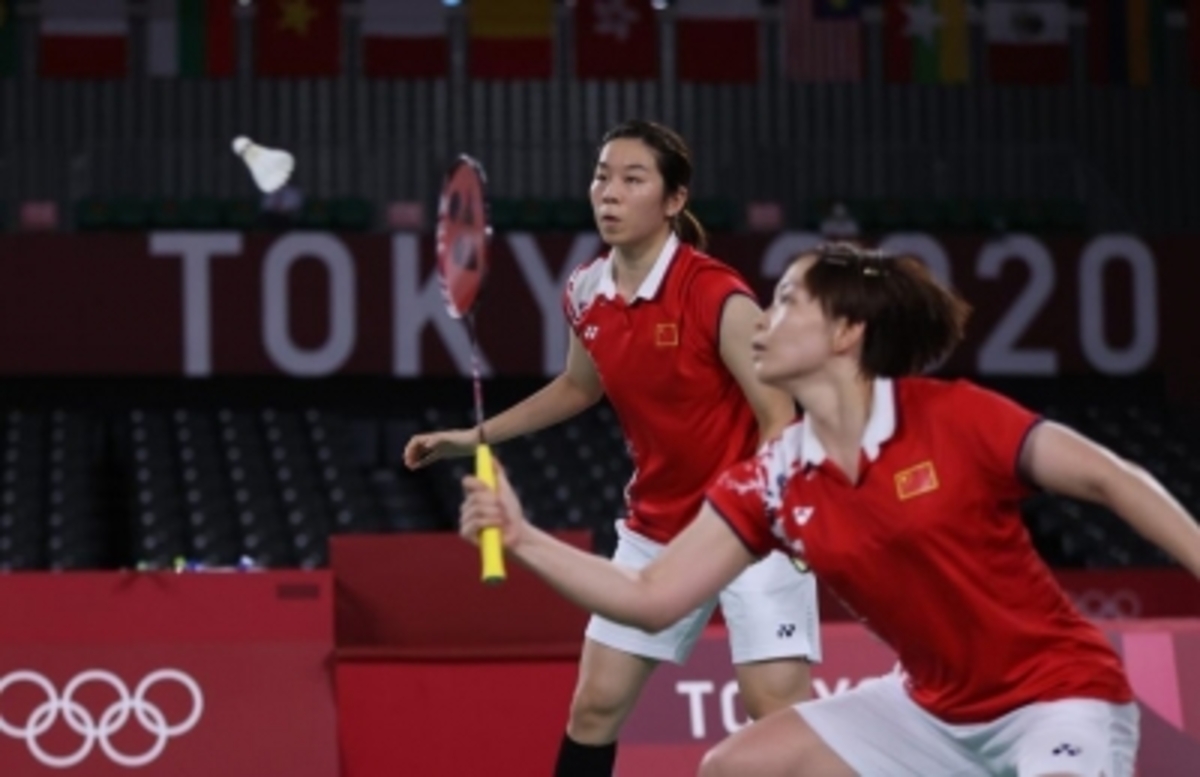Eight teams shared a total of 15 medals in badminton at Tokyo the Olympics. The medal table was still dominated by Asian teams, while China stood at the top by snatching two gold medals in the mixed doubles and women’s singles.
China was the also only team to progress to the finals in all five disciplines.
In the mixed doubles, China’s Wang Yilyu and Huang Dongping and two-time world champions Zheng Siwei and Huang Yaqiong bagged gold and silver respectively. Women’s singles shuttler Chen Yufei triumphed over Chinese Taipei’s world No.1 Tai Tzu-ying to claim another gold, reports Xinhua.
Advertisement
The other three silver medals for China came from Li Junhui and Liu Yuchen in the men’s doubles, Chen Qingchen and Jia Yifan in the women’s doubles, and Chen Long in the men’s singles.
Zhang Jun, head coach of Chinese badminton doubles and president of the Chinese Badminton Association, said that he was satisfied with the results because all the players tried their best, even though there were still some regrets.
“Our task was more or less accomplished as we reached the finals in all five disciplines. Yet we could have done better to win more golds,” Zhang said.
“We kept a low profile when we started our journey to the Tokyo Olympics, but that doesn’t mean we didn’t have confidence,” he noted. “I believe our players will re-recognize themselves through participating in the Olympics.”
In the men’s singles, two-time Olympian Victor Axelsen beat China’s defending champion Chen Long to take Denmark’s first gold medal in badminton at the Olympics since 1996. He is also the only non-Asian badminton medalist at Tokyo 2020.
Chen and Axelsen have been long-time opponents. In their previous clash at Rio 2016, Chen routed Axelsen 21-14, 21-15 in the semifinal before beating Malaysia’s legendary shuttler Lee Chong Wei to win his first Olympic gold. But this time, Axelsen turned the tables and stopped Chen from retaining his title.
Indonesia captured the women’s doubles gold. Three-time Olympian Greysia Polii and her partner Apriyani Rahayu beat China’s second seeds Chen and Jia to bring Indonesia’s first Olympic gold in women’s doubles. South Korea’s Kim So-yeong and Kong Hee-yong took bronze.
Chinese Taipei’s Lee Yang and Wang Chi Lin claimed the men’s doubles title, winning the first badminton Olympic gold for the Chinese Taipei team. Lee and Wang knocked out top seeds Marcus Fernaldi and Kevin Sanjaya Sukamuljo from Indonesia in the group stage, and ousted Indonesia’s second seeds in the semifinal. The bronze medal went to Malaysia’s Aaron Chia and Soh Wooi Yik.
In one of the biggest upsets on court, men’s singles world No.1 and home favorite Kento Momota was turfed out of the tournament in the group stage by South Korea’s dark horse Heo Kwang-hee.
Japan ended its Tokyo 2020 badminton journey with only one bronze medal in the mixed doubles and no players passing through to the finals, falling far short of expectations.
Zhang thought the reason behind Japan’s disappointing performance was too much pressure. “If the Games were held with crowds in the stands, Japanese players would have been even more stressful,” he noted.
Due to Covid-19 containment measures, almost all competitions at the Olympics are held in empty stadiums without any spectators.
Looking to the future, Zhang said that young players will grow faster through their participation in the Olympics, as they can learn a lot from it.
“We will do the best we can to participate in major tournaments coming next, such as the Sudirman Cup, and Thomas Cup/Uber Cup. Playing these global tournaments will help boost our confidence,” he added.











